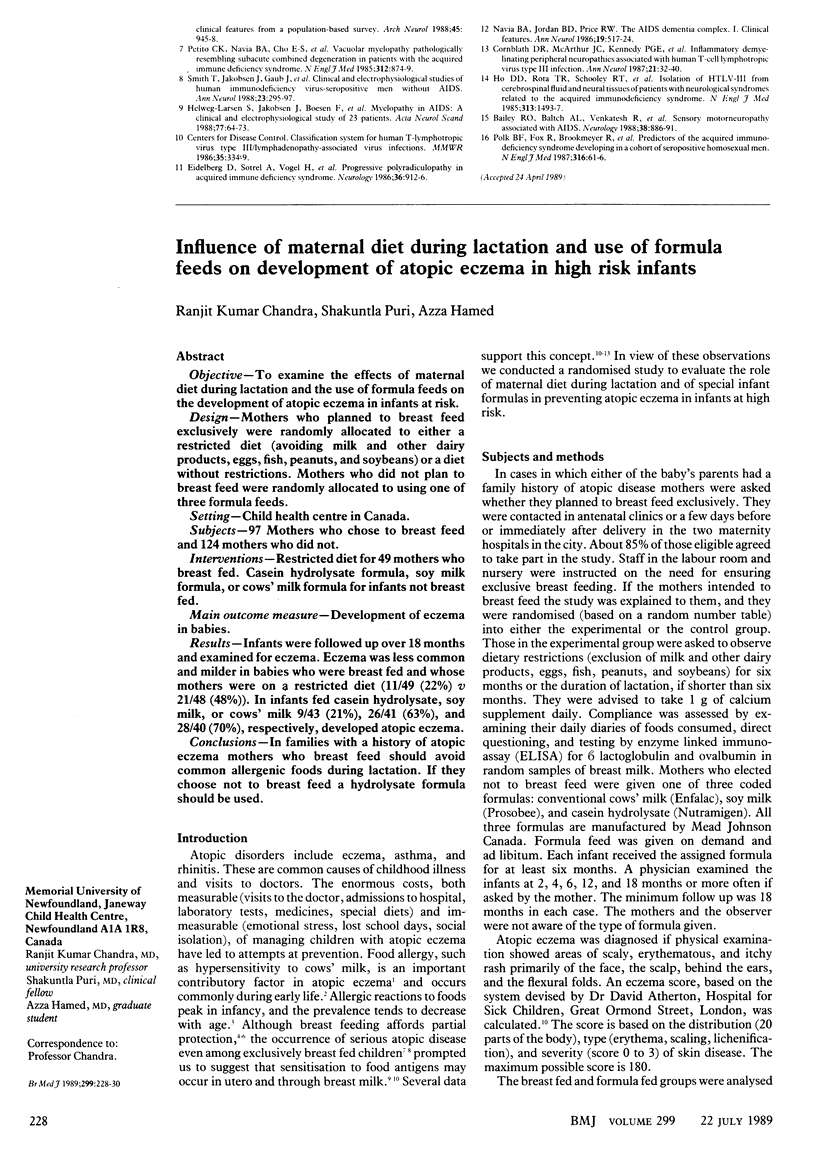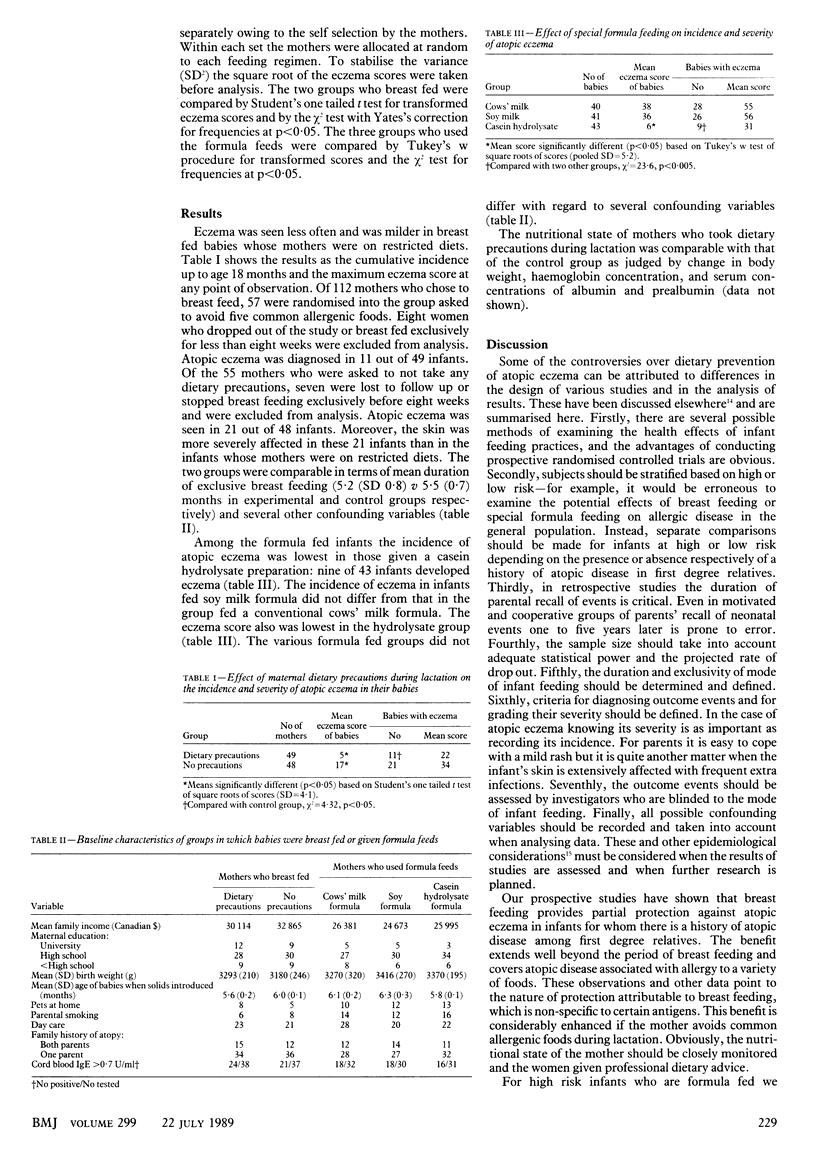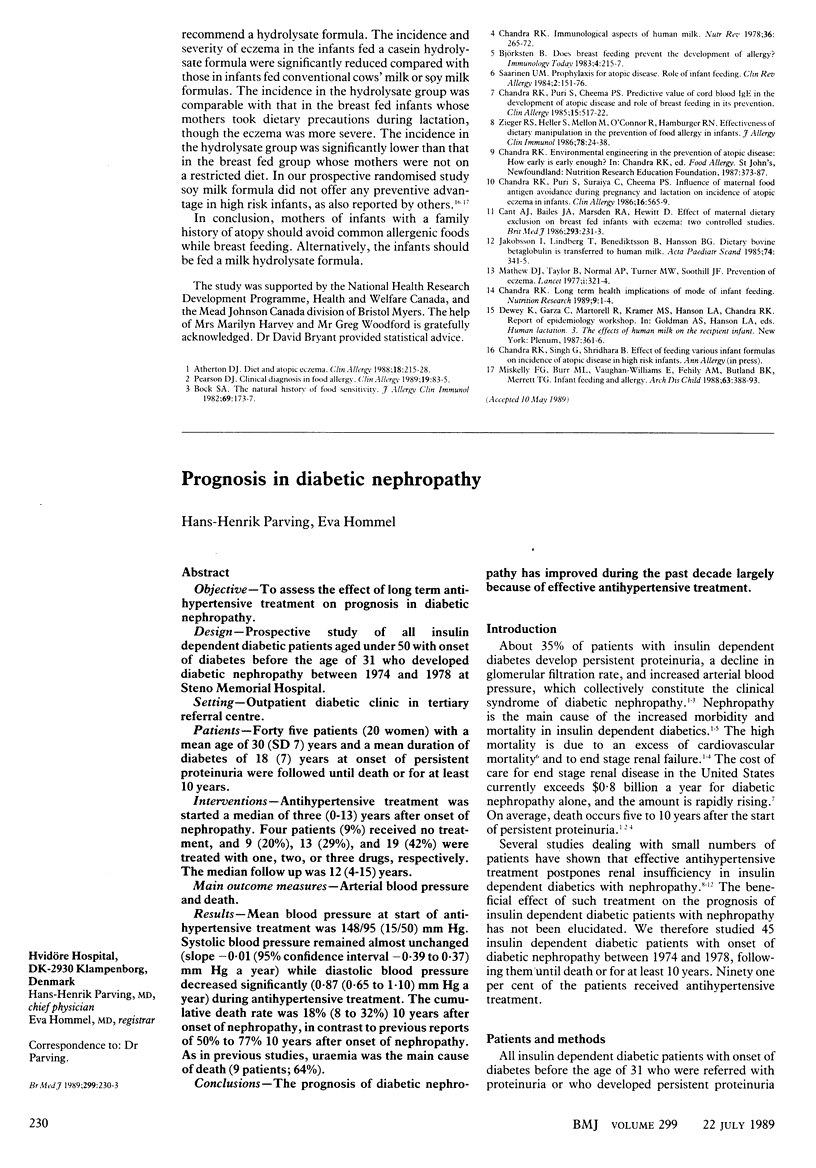Abstract
OBJECTIVE--To examine the effects of maternal diet during lactation and the use of formula feeds on the development of atopic eczema in infants at risk. DESIGN--Mothers who planned to breast feed exclusively were randomly allocated to either a restricted diet (avoiding milk and other dairy products, eggs, fish, peanuts, and soybeans) or a diet without restrictions. Mothers who did not plan to breast feed were randomly allocated to using one of three formula feeds. SETTING--Child health centre in Canada. SUBJECTS--97 Mothers who chose to breast feed and 124 mothers who did not. INTERVENTIONS--Restricted diet for 49 mothers who breast fed. Casein hydrolysate formula, soy milk formula, or cows' milk formula for infants not breast fed. MAIN OUTCOME MEASURE--Development of eczema in babies. RESULTS--Infants were followed up over 18 months and examined for eczema. Eczema was less common and milder in babies who were breast fed and whose mothers were on a restricted diet (11/49 (22%) v 21/48 (48%)). In infants fed casein hydrolysate, soy milk, or cows' milk 9/43 (21%), 26/41 (63%), and 28/40 (70%), respectively, developed atopic eczema. CONCLUSIONS--In families with a history of atopic disease [corrected] mothers who breast feed should avoid common allergenic foods during lactation. If they choose not to breast feed a hydrolysate formula should be used.
Full text
PDF


Selected References
These references are in PubMed. This may not be the complete list of references from this article.
- Atherton D. J. Diet and atopic eczema. Clin Allergy. 1988 May;18(3):215–228. doi: 10.1111/j.1365-2222.1988.tb02863.x. [DOI] [PubMed] [Google Scholar]
- Bock S. A. The natural history of food sensitivity. J Allergy Clin Immunol. 1982 Feb;69(2):173–177. doi: 10.1016/0091-6749(82)90096-3. [DOI] [PubMed] [Google Scholar]
- Cant A. J., Bailes J. A., Marsden R. A., Hewitt D. Effect of maternal dietary exclusion on breast fed infants with eczema: two controlled studies. Br Med J (Clin Res Ed) 1986 Jul 26;293(6541):231–233. doi: 10.1136/bmj.293.6541.231. [DOI] [PMC free article] [PubMed] [Google Scholar]
- Chandra R. K. Immunological aspects of human milk. Nutr Rev. 1978 Sep;36(9):265–272. doi: 10.1111/j.1753-4887.1978.tb07393.x. [DOI] [PubMed] [Google Scholar]
- Chandra R. K., Puri S., Cheema P. S. Predictive value of cord blood IgE in the development of atopic disease and role of breast-feeding in its prevention. Clin Allergy. 1985 Nov;15(6):517–522. doi: 10.1111/j.1365-2222.1985.tb02304.x. [DOI] [PubMed] [Google Scholar]
- Matthew D. J., Taylor B., Norman A. P., Turner M. W. Prevention of eczema. Lancet. 1977 Feb 12;1(8007):321–324. doi: 10.1016/s0140-6736(77)91131-x. [DOI] [PubMed] [Google Scholar]
- Miskelly F. G., Burr M. L., Vaughan-Williams E., Fehily A. M., Butland B. K., Merrett T. G. Infant feeding and allergy. Arch Dis Child. 1988 Apr;63(4):388–393. doi: 10.1136/adc.63.4.388. [DOI] [PMC free article] [PubMed] [Google Scholar]
- Saarinen U. M. Prophylaxis for atopic disease: role of infant feeding. Clin Rev Allergy. 1984 May;2(2):151–167. doi: 10.1007/BF02991063. [DOI] [PubMed] [Google Scholar]


